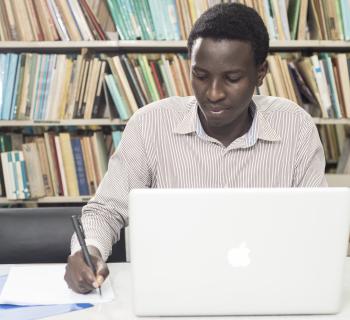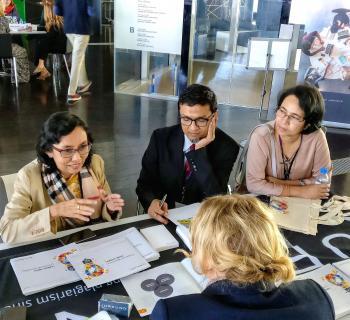


In order to develop their knowledge and expertise and further their research, students and researchers at universities and academic institutions rely on getting access to up-to-date literature in their fields.
The high cost of e-resources is a major barrier to access for libraries in developing and transition countries. As a result, important contributions to research, education and development are slowed down.
To address this critical issue, the EIFL Licensing programme negotiates free or discounted access to commercial e-resources on behalf of library consortia and their member libraries in EIFL partner countries.

We build the capacity of librarians to negotiate transformative agreements, such as 'publish and read' agreements, with publishers.EIFL has chosen to work with library consortia to be able to address the needs of many institutions and reach millions of people. See our interview with Marika Meltsas, EIFL Country and Licensing Coordinator in Estonia (EIFL Annual Report, 2023).
Through central negotiation with publishers, almost 70 high-quality commercial e-resources from more than 25 publishers and content aggregators are available through the EIFL Licensing Programme. These include e-journals, e-books, reference works and aggregated databases covering a broad range of subject areas, all of which are essential for research and education.
Thanks to the EIFL Licensing programme, NELIC members can get a wide range of commercial e-resources free of charge or at very reduced prices. In addition to fulfilling the needs of existing members, this helps us to attract new members and to build a sustainable consortium.